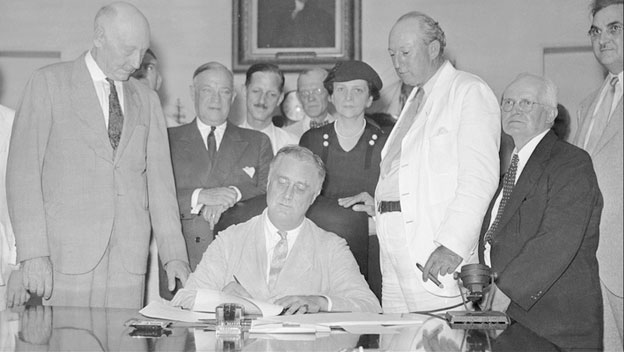
Featured Blog | This community-written post highlights the best of what the game industry has to offer. Read more like it on the Game Developer Blogs or learn how to Submit Your Own Blog Post
You don't always have to commit.
Musing on shades of grey, Randy talks about the importance of "maybe".

I have a tabletop pirate game I'm making right now called Scoundrels. There's a card in the game that some people consider edgy, believe it's incorrectly placed within a friendlier game. They suggested that I either commit to being edgy, or remove the card that they felt was misplaced. I had mixed feelings.
Story time, kids:
Growing up, I was taught to commit to things. If you want to be a good trumpet player, you have to practice every day. If you want to be an athlete, you need to train. And this is true. But I was also given this directive in my AP U.S. History class. That when the essay portion of the AP test arrived, we were supposed to commit to an answer. The essay my year contained the question of whether or not FDR's "New Deal" was responsible for ending the Great Depression. Under the directive of my teacher would've come either yes or no. We were supposed to commit: Did the "New Deal" end the Depression or not?
I answered "maybe". I tried hard to do what the teacher said and come to a "yes" or "no". But I didn't feel it. So I said that the "New Deal" seemed to play a considerable role in helping things, but that without WW2, it may not have been enough. The "New Deal", to my knowledge at the time, was not the end-all, but it was important.
I got a 5 out of 5 on the test. Causation, correlation, there are so many factors, it's unwise to draw any concrete conclusions about my score, but that essay taught me something. The answer doesn't have to be yes or no. And you know this. We all learn this. But with all the choices in life, it's easier to make a rule or default of committing to something one way or another.

And in games, it feels like when you make something, it is supposed to be all the way. That if you make horror, the horror has to be pitch black. That if it's a raucous pirate adventure, it needs to commit to that. That your steampunk king of the rats underworld denizen needs to ooze that character from every pore.
But when people talk about adding quirks and off-beats to things, it's because the world doesn't work in absolutes. Because your underworld denizen king of the rats may have grown up with the best kitty who wouldn't hunt rats even though she was supposed to. The best horror is when it creeps up on you. When normalcy suddenly gets traded for madness. Straight up gore porn is fine, but you'll scare the crap out of me way more with Audition, a Japanese horror flick that a third of the way in you think you're basically in a romantic comedy and then... omfg.
The muppets is my number one example of something that answers "maybe". The show is for adults as well as kids. In the best episodes and movies, there are relatable themes, inside jokes, layers of context and understanding, humor and darkness.
With Scoundrels, I'm interested in exploring that line, hardcore and simple, medium length, fun with notes of sincerity or darkness. Contrast is so affecting. It's worth it to mess with right and wrong, even if much of the time it ends up not quite working. And I want to make sure that's clear. The suggestion I received from my friends that maybe the card wasn't appropriate, that suggestion may be correct. But there's a balance to harsh and soft that I find beautiful and troubling and worth exploring.
I think the goal is to search for a way for these answers and feelings to flow from one to another. That the "maybe" can flow from the "yes". We want to know how to get to the light from the dark, or the dark to the light. I want to build the world where you appreciate the "maybe" later on. I have to let the "no" breathe, such that the "yes" is that much more triumphant, and yet then you come back to where maybe the "no" had value.
You need to do the work, do your due diligence, experience the right or wrong, the "yes" and "no", but you don't always have to find an answer.
-
Randy O'Connor is an indie who helped make Escape Goat 2, Waking Mars, Spider: The Secret of Bryce Manor, and is about kickstart a tabletop pirate game called Scoundrels.
Read more about:
Featured BlogsAbout the Author(s)
You May Also Like







.jpeg?width=700&auto=webp&quality=80&disable=upscale)








